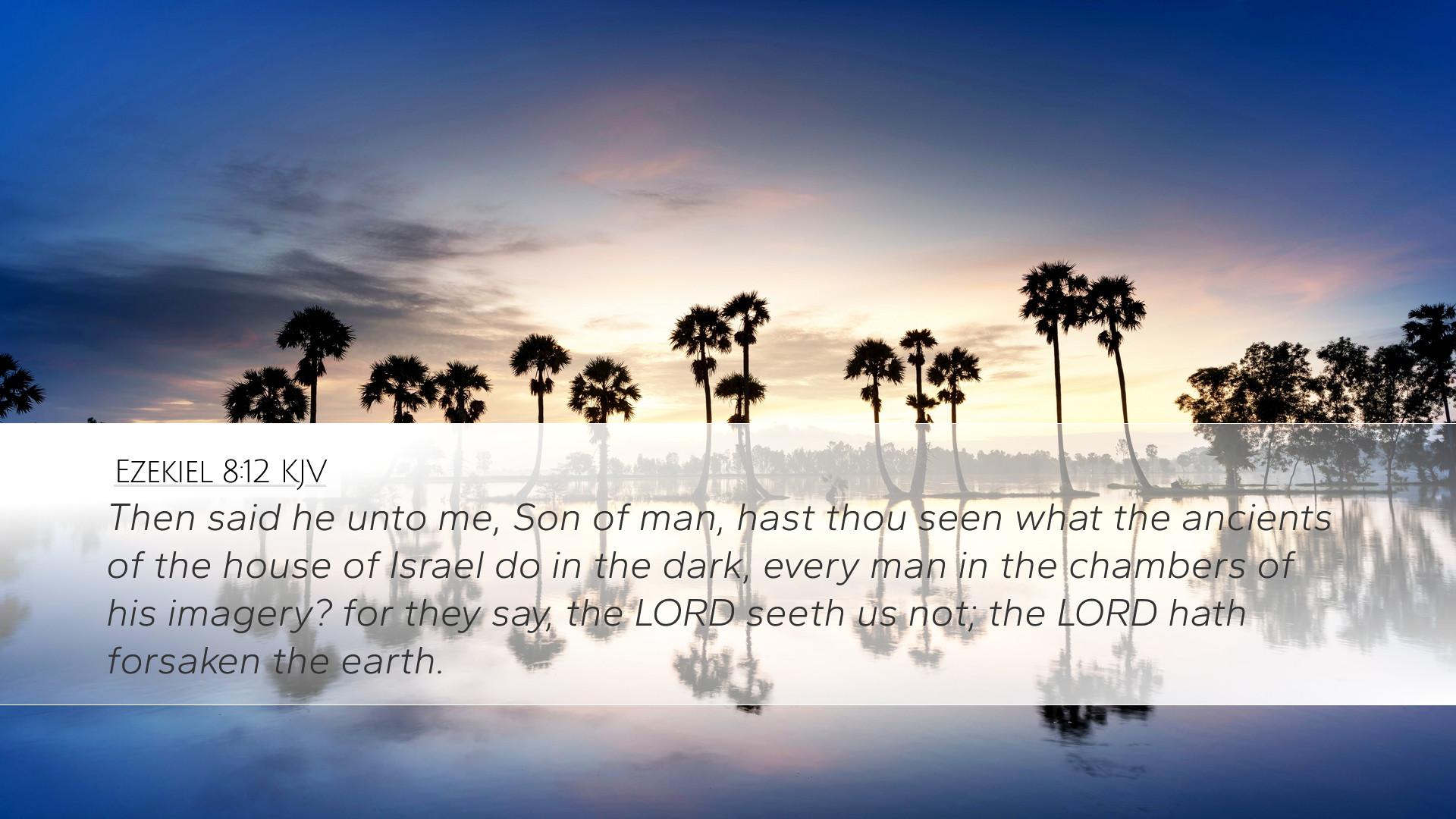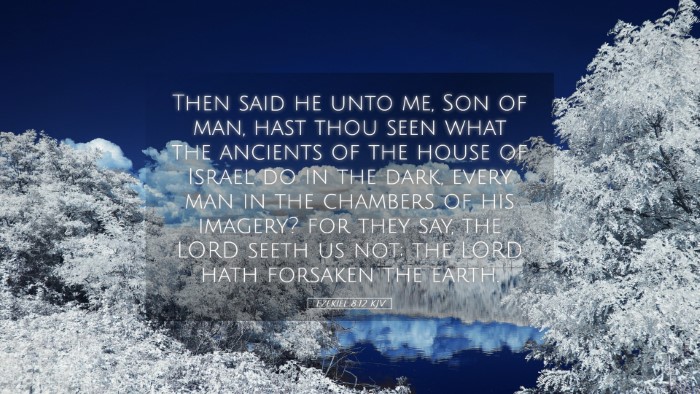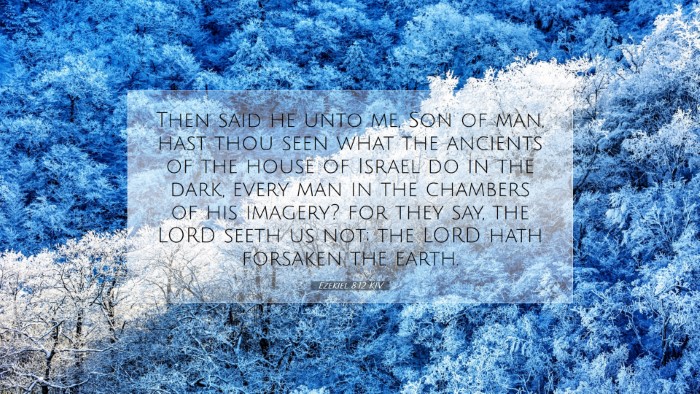Ezekiel 8:12 Commentary and Insights
Bible Verse: "Then said he unto me, Son of man, hast thou seen what the ancients of the house of Israel do in the dark? every man in the chambers of his imagery: for they say, The Lord seeth us not; the Lord hath forsaken the earth." (Ezekiel 8:12)
Context and Background
The prophetic book of Ezekiel is set during the period of the Babylonian exile, where the prophet Ezekiel is called to deliver messages from God. The vision in Ezekiel 8 reveals a profound concern for idolatry and the spiritual corruption of God's people, particularly focusing on the leaders and their actions in secret. This verse comes amidst a series of disturbing revelations on the practices that were taking place in the temple, especially reflecting the hidden sins within Israel’s leadership.
Exegesis of Ezekiel 8:12
Ezekiel 8:12 presents a poignant inquiry about the moral state of Israel through divine revelation. Here, God reveals the actions of the 'ancients' or elders of the house of Israel, indicating not only their public roles but also their private sins. This verse indicates the contrast between their outward semblance of leadership and their inward moral condition.
- The Ancients: The term 'ancients' refers to the respected leaders among the people of Israel who should embody righteousness. However, this curse highlights their hypocrisy.
- Darkness as a Metaphor: The phrase 'in the dark' implies both physical secrecy and spiritual blindness. It conveys an atmosphere of hidden sin and moral decay.
- Imagery Chambers: The 'chambers of their imagery' suggests that these leaders entertained idolatrous thoughts and practices, denying God's power and presence.
- The False Security: Their declaration that 'The Lord seeth us not' reflects their misguided sense of security and belief that they could act without divine judgment.
Theological Insights
This verse addresses the nature of sin and the belief in divine absence. Disconnection from God leads to moral degradation, as leaders establish a distance from accountability.
- God's Omnipresence: Despite their belief that the Lord had forsaken the earth, the reality is that God is omnipresent, always aware of human deeds.
- Spiritual Blindness: The sin of the elders illustrates a broader human tendency to believe in a deceptive comfort that comes from acting outside of God's will.
- Divine Revelation: The prophetic insight offered to Ezekiel serves as a reminder that God sees beyond mere actions to the intentions of the heart.
Comparison with Public Domain Commentaries
Different theologians provide unique perspectives on this verse:
Matthew Henry
Matthew Henry emphasizes the hypocrisy of the leaders who engaged in idolatrous practices while maintaining a facade of piety. He asserts that such behavior signifies not only a departure from genuine worship but also an inevitable decline in moral integrity among the entire community.
Albert Barnes
Albert Barnes details the spiritual implications of the elders' actions, noting that even the leaders were indulging in secret sinful attractions. His commentary highlights the danger of assuming that God is indifferent to human behavior, and he argues that such a mindset leads to collective judgment from God.
Adam Clarke
Adam Clarke delves into the sociocultural aspects behind the idolatrous imagery. He suggests that these elders manufactured their own religious narratives that contradicted Yahweh's commandments, displaying a profound disconnection from their covenant with God.
Practical Applications
For pastors, students, and theologians, this verse serves as a powerful reminder of the importance of integrity among leaders. Here are key applications:
- Leadership Accountability: Church leaders must recognize the weight of their influence and the imperative of practicing what they preach.
- Vigilance Against Hypocrisy: It is essential to foster an environment where transparency and honesty are valued over appearances.
- Embrace Divine Awareness: Understanding God's omnipresence can cultivate a stronger moral compass, guiding actions even in secrecy.
Conclusion
Ezekiel 8:12 serves as a sobering reminder of the hidden sins among leaders and the reality of living in a world often oblivious to God's judgment. By studying this verse, one can appreciate the profound implications it holds for individual faith and community health, offering a call to humility and acknowledgment of human frailty before an omniscient God.


